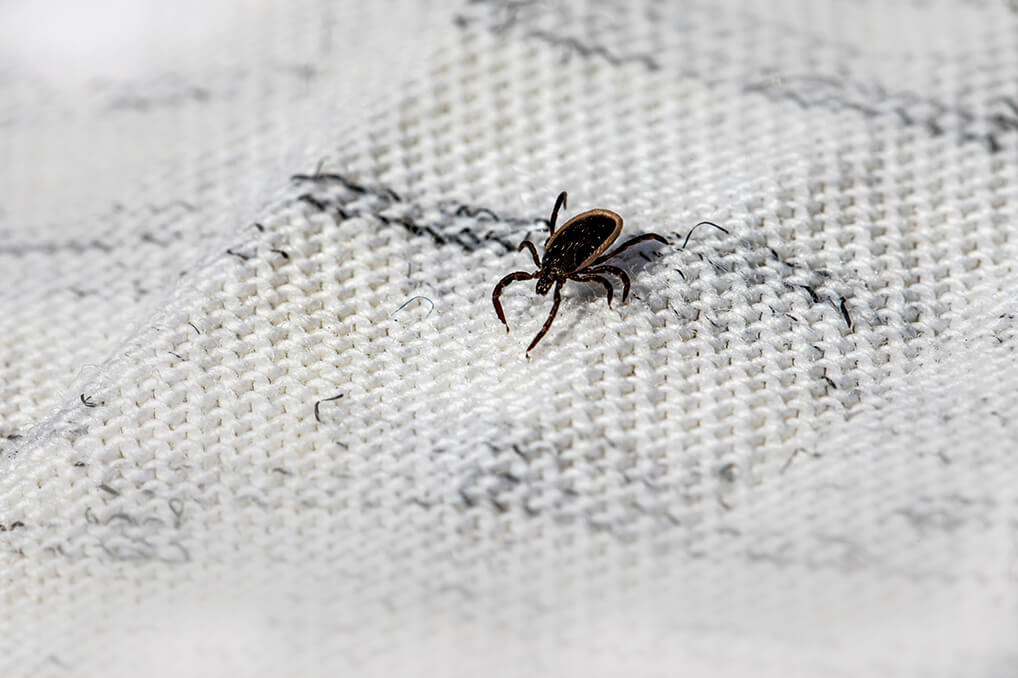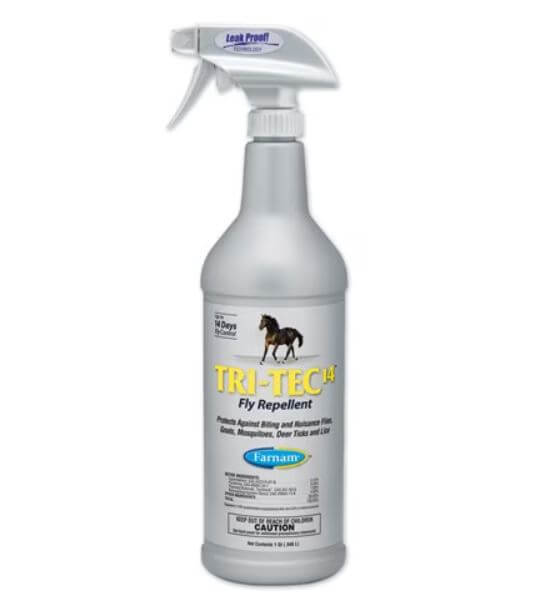
With the warming weather and the promise of beautiful, memory making rides, comes another memory you’ll wish you could forget about: The Ticks.
Speaking from personal experience: the the ticks are bad this year. I’ve been dealing with ticks for many years, but never have I seen so many so early in the year. They are out in full force, spreading their diseases.
I became very sick at the beginning of April and it was unlike any sickness I had before. I was so cold I couldn’t stop shivering. I was having bouts of vertigo. I was super weak and there was so much pressure in my head. I had no idea what was happening.
Turns out, neither did anyone else. The doctors couldn’t figure out why. I went to both urgent care and the emergency room. I got tons of tests, (including for Lyme disease!!) and since there was a tiny, miniscule chance it could be meningitis, I even got to experience a spinal tap. No answers. Nothing came back except for it was clear I was having some kind autoimmune response. My main take away from this is that sometimes doctors just don’t have any clue what is wrong with you. It was labeled as a fever of unknown origin, and I just had to wait it out. But then I found a beacon of hope: a bulls eye rash on my arm. I don’t know how it was missed, except that I was so cold I was basically wrapped in 5-6 blankets at all times. But still, it was a good sign because I finally had a diagnosis which enabled me to get medicine.
In conclusion, it was a rough few weeks. But now I have my backstory to get revenge on the ticks, thus I can have a complete story arc as I seek to destroy the ticks. Therefore, please continue reading to find out how we’re going band together to get rid of those suckers (pun intended).
Ticks and Horses
Horses live outside. Ticks live outside. They’re going to find each other eventually. Ticks, much like alligators, are ambush predators. Also like alligators, ticks can climb. Unlike alligators, Ticks will climb to the tips of tall grass, shrubs or branches, which alligators aren’t known to do. Ticks then find their victims by sensing vibrations and carbon dioxide being exhaled.
Once on board, the tick will take a scenic tour of your horse’s body, searching for the perfect feeding ground. Different types of ticks will prefer different locations, but they generally go for thin skinned areas – getting as close to the buffet as possible.
Areas of the Horse to Check for Ticks
You’ll want to look over your whole horse regularly to remove these hitchhikers, but they can be sneaky. Make sure you check these areas:
- Head: under the chin, on the underside of the jaw, under the forelock, on the ears.
- Horse armpits.
- The belly, the sheath, the udders, between those back legs, under the tail.
- Tail bone
How to Remove a Tick
There’s always the ol’ grab and rip ’em off method, but you may end up squeezing infected blood back into your horse. Instead, use this device. It’s literally one of the best things I’ve ever bought. It makes tick removal super easy. Use it on your horse, your dog, your kids, yourself. It’s dirt cheap, so buy multiples so you can keep one with your grooming supplies, and one in every bathroom. Gift them to your barn friends so they can experience the joy of quick and easy tick removal. Be the hero that we all need.
Now once removed, this next step is super important: DESTROY THE TICK BY ANY MEANS. Smash that thing with a rock or a hoof pick. They are surprisingly tough, so make sure it’s dead.
Now pat yourself on the back, because you are doing your part in the fight against ticks.
Tick Remover Tool
Tick removal made easy.
Keeping Ticks off Your Horse
Even better than a handy device to pull off ticks is to never have to pull them off in the first place. We like our horses how we like our coffee – completely 100% tick free. So to keep those ticks off your horse, there’s a few options to try.
Fly Spray for Ticks
Fly spray is sort of cheap, easily accessible, and you can also spray it on your own legs to keep the ticks off. But, it can also be expensive when you end up going through it fast, and also everyone else in your barn ends up going through your fly spray. Yes, specifically YOUR fly spray.
But fly spray is good because you’re likely already putting it on for it’s intended purpose, to get rid of the flies. Let it do double duty to reduce ticks, too. Next time you shop for fly spray, check the label to see if it will also keep away ticks, too.
Tri-Tec Fly Spray
I’ve had multiple recommendations for this spray – it does seem to work! Repels many flies, mosquitos and ticks.

Spot Protection for Ticks
While still in the fly control category, spot on protection is a bit different. Once applied to the horse, it lasts two weeks, protecting fly and tick protection. Equi-Spot is highly recommended to keep the ticks off your horse, but some users have reported their horses getting a rash from it. If your horse has sensitive skin, it may not be a good option, but otherwise this is a great way to keep those ticks off at a fairly low price.
Farnam Equi-Spot
Applying this in strategic spots on the horse will give about two weeks of protection.
Pesticide Free Tick Control
As much as I hate ticks, there’s something else I hate more: chemically destroying ecosystems with pesticide. If you don’t think this is a serious concern, how often are bugs stuck to your car’s windshield these days? Is it basically nothing, right? I’m old enough to remember when that wasn’t the case. There used to be far more bugs in the world, and it’s a serious concern that there isn’t anymore.
It kills me inside when people spray their lawns with pesticide. Not only are helpful bugs being eliminated, those chemicals are now out in the environment. Like, they don’t just vanish, even if it seems like it. We are destroying nature in the pursuit of having green carpet outside. Ugh.
But all that is to say that while I get people don’t want bugs, there’s way to reduce bugs without chemicals.
The Fowl Solution
This is clearly the best solution, so I highly encourage it – it’s time to get a flock of chickens! Chickens are fun, entertaining, and smart birds. I had tons of fun with mine over the years. But if you like shrill, shy birds, you could go with guinea hens, too. I don’t have experience with them but some people swear by them.
Of course the downside to adding a flock of birds is that now you have to take care of a flock of birds. Feeding them, maintaining their coop, holding funerals for their untimely deaths… it can take up a lot of time. But still, getting a flock is a great way to help keep down the tick population.
To learn more about chickens and poultry, check out mypetchicken.com, local facebook groups, or your local agriculture extension agent.
Mowing
Basic maintenance of your property is going to help keep down the tick population. Just mowing your pastures frequently will deter them from hanging around. Plus, other wildlife that carry ticks will hang out there less. So while it might not get rid of all of them, it will significantly reduce the amount of ticks in your pastures. Plus, mowing breaks up manure piles, which can reduce the amount of flies around. Really, this is a win-win situation.
Plus, it is super satisfying to have a tidy, mowed pasture. So grab your hat, slather on your sunscreen, and get on out there!

Photo by Christian Widell on Unsplash
The Ticks Never Give Up
Sometimes despite all your best efforts, the ticks are still there. They are still part of the environment where your horse lives, so it can be impossible to get away from them. All you can do is try your best.
If your horse does end up getting a tick-borne disease, you have my sympathies. With so many ticks around, it’s a real battle. But there is hope for the future – While it’s early still, a vaccine is being worked on to prevent Lyme disease. It could still be years before there’s a vaccine available for horses, but it’s still a sign of good things to come.
In the meantime, keep fighting the good fight against these horrible bugs. They’ll never give up, so we must never give up. Stay strong, my horse friends. And don’t forget to check yourself regularly as well!
Have any other recommendations for reducing or getting rid of ticks? Share it below so we can all benefit!


